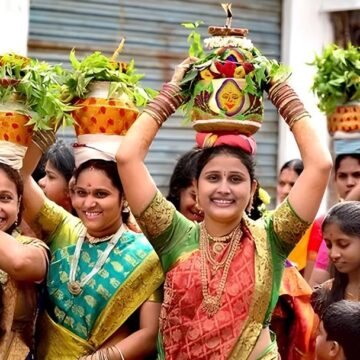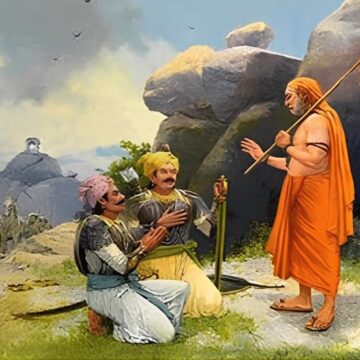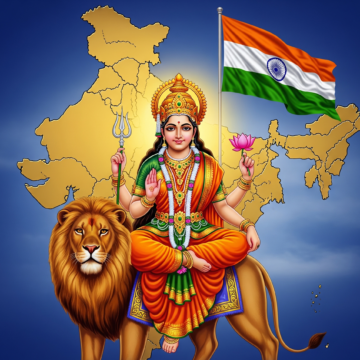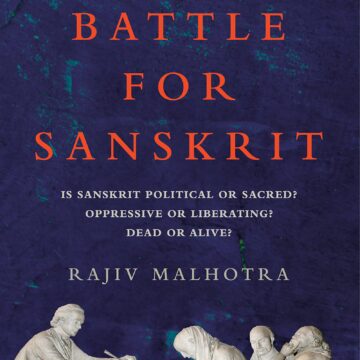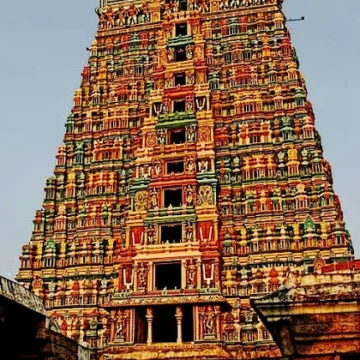Nestled in the sacred hills of Tirumala, Tirupati is more than a pilgrimage — it is a living legacy of devotion and divine grace. From ancient Pallava endowments to the grandeur of the golden roof of the sanctum sanctorum donated by Krishna Deva Raya, its history is etched in every gopuram. Always reverbating with the chants of “Govinda”, for millions in South India, it is not just a temple, but an inseparable part of life’s journey.
Year: <span>2025</span>
Bonalu – The Living Goddess Traditions of Telangana
Bonalu is more than a festival—it’s the heartbeat of Telangana’s devotion to the Mother Goddess. Rooted in ancient village traditions and the worship of Grama Devatas, it transforms Hyderabad into a living tapestry of devotion, ritual and culture. From trance-induced prophecies to the fierce dance of Pothurajus, every moment is an embodiment of Shakti — both protective and powerful.
Harihara, Bukka, and the Birth of Vijayanagara
At a time when Muslim invasions had devastated much of North India and were sweeping into the South, two brothers—Harihara and Bukka—guided by the sage Vidyaranya, laid the foundation of the Vijayanagara Empire in 1336. More than a kingdom, it became a bastion of Hindu dharma, shielding the South for over two centuries. This is the story of its origins and enduring legacy.
The Limits of Equality: A Dharmic Appraisal of Modern Political Theology
Modernity universalizes Enlightenment ideals of equality, recasting Dharmic order as moral failure. But in Dharma, justice lies not in sameness, but in harmony—each being acting in accordance with its Svabhāva and Svadharma. The caste system, far from being a hierarchy of worth, was a framework of reciprocal duty, now misunderstood and maligned through colonial and liberal lenses. True reform lies not in dismantling tradition, but in reclaiming its wisdom with renewed understanding.
Bhārat’s Flag, Anthem and Name
In this article, Dr. Koenraad Elst reflects on how India's national symbols—its flag, anthem, and the very name Bharat—are deeply rooted in Hindu tradition. Elst argues that despite the secularist intentions of Nehruvian India, the Dharma Cakra in the flag, the reference to Ma Durga in the anthem, and the nation taking its name from King Bharata, reveal a cultural continuity that cannot be denied: that India, by heritage and spirit, remains a Hindu Rāṣṭra.
Roots in Exile
In the wake of the massacre of Hindus in Pahalgam, Anjali George pens this poem ruminating on exile, identity and the quiet power of resilience. Weaving together stories of communities forced into exile, whose histories have been erased or silenced, the poem explores how faith, culture and memory survive displacement and how the uprooted still find ways to take root again.
‘The Battle for Sanskrit’ by Rajiv Malhotra – A Review
First published in 2016, Rajiv Malhotra's 'The Battle for Sanskrit' is as relevant today as it was then. In the book, the author challenges dominant Western narratives that seek to desacralize Sanskrit by stripping it of its religious and cultural significance. Written in an easy-to-read style with scholarly insights, the book urges both traditional and modern readers to engage in an honest dialogue. The book is an important one that defends heritage and also seeks to de-westernise Indology.
Concerns of the Colonized – Freedom for Temples
For centuries, Hindu temples thrived as autonomous centers of faith, culture, and community life. However, today, the secular state treats temples as mere public property and exploits them, subjecting them to to excessive taxation, mismanagement, and neglect. Unlike religious institutions of other faiths, Hindu temples remain uniquely burdened by government interference, highlighting a systemic inequality. In this call to liberate Hindu temples, Raghu Bhaskaran addresses the concerns of corruption and mismanagement if temples are freed and asserts that freeing temples is a key step towards Hindus owning their narrative.
No Waqf, No Fawq, Just some FAQs on Hindu Temple Properties
A Hindu temple and its properties do not belong to the government, the public or even the Hindu community — they belong solely to the residing deity, the Pradhana Devata. Historical arguments about coercion in temple land donations ignore the broader reality that all land ownership has evolved under different rulers. While institutions like the Waqf Board retain vast properties, temples face state control and encroachment, reducing them to mere revenue sources. This neglect betrays both the faith of past donors and the cultural heritage temples embody.
Oppenheimer – An Open Letter to Christopher Nolan
As we pass the 2025 Oscars, Charu Uppal recalls the grand success of the movie Oppenheimer in the 2024 Oscars. In this open letter to the director Christopher Nolan, she points out how the movie conspicuously avoids showing the suffering of the Japanese people, barely mentioning the names Hiroshima and Nagasaki. Even more troubling is the decision to juxtapose the sacred Bhagavad Gita with an intimate scene — a choice that was neither accidental nor faithful to historical context. In an industry that does not shy away from showing violence, the film omits the human cost of the bomb while including a scene that offended millions. Creative freedom is vital, but so is cultural responsibility.


